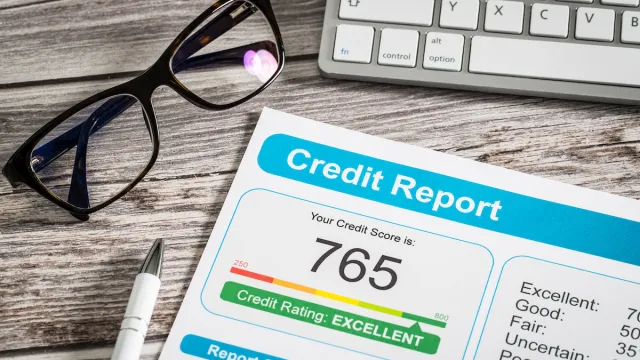The Imperfect Credit Score That Makes Banks "Fall All Over Themselves" to Work With You
A financial educator is assuring folks they don't need an "exceptional" score to enjoy all the perks.
Having a good credit score can help with everything from qualifying for the best credit cards to securing low-interest rates on loans. That said, sustaining an amazing credit score isn't always easy when variables like debt and late payments come into play. The good news is that you don't need a perfect credit score to reap all the wonderful benefits, according to financial educator Lynnette Khalfani-Cox.
In an interview with CNBC's Make It, The New York Times bestselling author and The Money Coach founder said people may be surprised to hear that the credit score range that makes banks "fall over themselves" isn't a a percent 850.
RELATED: Never Use Your Credit Card for These 6 Purchases, According to Financial Experts.
Though it required hard work and a lot of patience, Khalfani-Cox shared with CNBC that she raised her credit score by 400 points within three years, while simultaneously paying off $100,000 in credit card debt.
Since earning an "exceptional" credit score of 850, Khalfani-Cox's score has fluctuated from 839 to 806 and even dipped as low as 765 at one point—which is still considered "very good" by Experian's credit score standards.
For reference, Experian categorizes scores between 800 and 850 as "exceptional" and scores between 740 and 799 as "very good." Those in the 670 to 739 range are considered "good," while those in the 580 to 669 range are described as "fair." A score of 579 or below is considered "poor."
While Khalfani-Cox has since worked her way back into the top bracket, she's noticed that being an exceptional credit score holder doesn't necessarily open more doors than a score in the "very good" range.
"My 800 or my 850 FICO score is not going to get me any better loan rates or terms than the person who has a 760 or 780 FICO score," Khalfani-Cox told CNBC. "Once you're in the perfect credit scoring range, banks are going to fall all over themselves to do business with you."
While a few points here or there may not seem like a big deal, Khalfani-Cox argues that it could make or break which range you fall into.
"If you were in the 760 point range, now you're a 748 or 750, and now you just blew being able to get the best loan rates and terms on a mortgage or credit card," she explained.
This is why she works to ensure her credit score stays in tip-top shape. One of the biggest ways she does this is by meeting every payment deadline since payment history accounts for 35 percent of your calculated score.
"I have a very long established credit history over 25 years," she said. "I have an excellent payment track record and I never miss any payments."
Another area Khalfani-Cox monitors is her credit utilization rate, which she tries to keep under 10 percent.
"So-called FICO high achievers who are in the 760 to 850 range generally have a 10% or less credit utilization rate, and I usually keep my stuff in that zone," she explained.
When it comes to opening new credit cards or loan applications, Khalfani-Cox refrains unless she "truly needs it." This avoids a "hard inquiry," which can also deduct points from your score, per FICO's website.
RELATED: Finance Expert Warns Afterpay Could Drop Your Credit Score by 100 Points.
Other ways you can boost your credit score are by becoming an authorized user on someone else's account (ideally, someone who never misses payments) and keeping older credit accounts open.
Speaking to the latter point, Julien Brault, CEO of Hardbacon, a Canadian personal finance management mobile app, previously told Best Life: "Multiple factors, including the age of your credit, calculate your credit score. Therefore, older credit is actually important for your score, and as long as you keep them open, they will positively impact your score as they age."
But if you're looking for somewhere to start, Khalfani-Cox says the three best things you can do for your credit score are making on-time payments, maintaining a low credit card balance, and not exceeding your card's limit.
"Just by following these three strategies, it really does help to keep me in that perfect credit scoring range of 760 to 850 points," she shared.
Best Life offers the most up-to-date financial information from top experts and the latest news and research, but our content is not meant to be a substitute for professional guidance. When it comes to the money you're spending, saving, or investing, always consult your financial advisor directly.






















